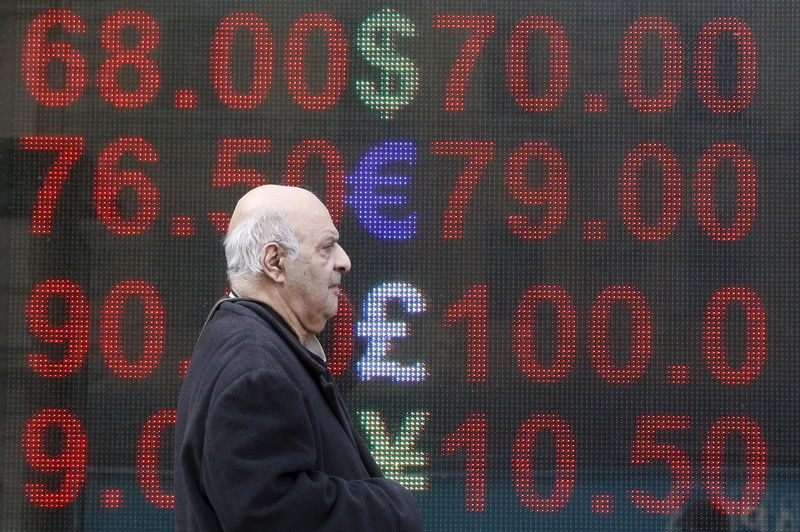Investing.com - The dollar rose against the yen on Tuesday after Japan’s finance minister warned that officials are prepared to intervene if the country’s currency continued to strengthen.
USD/JPY rose 0.66% to 109.05, the highest level since April 28 after ending the previous session with a gain of 0.94%.
The U.S. dollar index, which measures the greenback’s strength against a trade-weighted basket of six major currencies, was steady at 94.08.
The dollar had fallen to 18-month lows of 105.05 against the yen last Tuesday after the Bank of Japan kept monetary policy unchanged, defying market expectations for additional easing.
Japanese Finance Minister Taro Aso said Monday that financial authorities are prepared to intervene in the currency market if excessive moves in the yen continued.
The yen initially showed little reaction to the comments amid the view that authorities are unlikely to take steps to weaken the currency in the absence of support for such a move.
Late last month the U.S. Treasury Department added Japan to a watch list of countries it is monitoring to gauge whether their foreign exchange policies provide an unfair trade advantage.
Aso said Monday the Treasury’s move to put Japan on a watch list “won’t constrain” Tokyo’s currency policy.
Speaking Tuesday, Aso reiterated that Tokyo will intervene in the currency market if "one-sided" moves in the yen persist.
Also Tuesday, Japan’s Economy Minister Nobuteru Ishihara said he was closely watching financial markets after the yen’s gains last week.
The yen was also weaker against the euro, with EUR/JPY advancing 0.79% to 124.25 after ending Monday’s session with gains of 0.92%.
The single currency edged higher against the dollar with EUR/USD easing up to 1.1394.
In the euro zone, data on Tuesday showed that German industrial output fell more than expected in March, but exports rose strongly.
German industrial production fell by 1.3% in March, the largest monthly decline since August 2014.
A separate report showed that Germany’s exports rose by a larger-than-forecast 1.9% in March while imports fell by 2.3%, widening the trade surplus to €23.6 billion.
